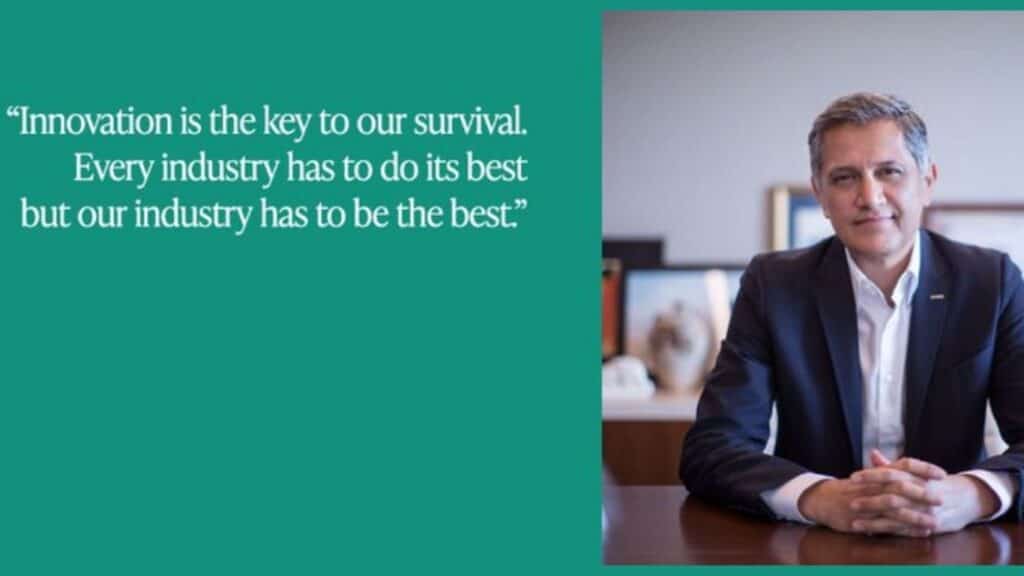
Disruption is often a badge of honor in the startup world. But in healthcare, especially in regulated sectors, disruption without responsibility is a liability. Health tech founders and innovators walk a fine line: pushing boundaries while maintaining public trust, patient safety and compliance with complex regulations. Joe Kiani, founder of Masimo and Willow Laboratories, supports innovation that enhances safety, transparency and long-term trust. By prioritizing ethical innovation, healthcare startups can not only drive progress but also build lasting credibility and trust within the medical community.
Responsible innovation means building with intention, prioritizing ethical standards, rigorous testing and alignment with healthcare norms. It’s not enough to move fast; startups must also ensure their solutions are safe, compliant and truly beneficial. Trust is earned through transparency, collaboration with regulators and a clear commitment to patient well-being. By balancing ambition with accountability, health tech can drive lasting, positive change without compromising the core values of care.
Understand the Landscape Before Entering It
Unlike consumer tech, healthcare innovation is subject to a layered web of oversight. From the Food and Drug Administration (FDA) in the United States to international regulatory bodies and privacy laws like HIPAA and GDPR, the rules are many and serious.
Health tech leaders must build regulatory literacy early. Understanding which rules apply to their product and involving compliance professionals from the start reduces costly delays and helps avoid rework down the line.
It also positions startups as credible players. Health systems, payers and patients are more likely to adopt a tool that meets established safety and privacy benchmarks. Familiarity with pathways for device approval, digital therapeutic classification and billing codes also enables faster market access and adoption.
Build Trust Before Scale
Trust is the currency of health innovation. Disruptive technology that overlooks patient experience, provider needs, or ethical safeguards may win headlines but lose the long game. Responsible disruptors consult with clinicians and patients early and use that feedback to guide design. They are transparent about data usage and risks. They make safety features as prominent as user-friendly ones.
As healthcare technology advances, the focus is shifting from mere data collection to the meaningful interpretation of information. Joe Kiani Masimo founder stresses, “It’s not just about collecting data. It’s about delivering insights that empower people to make better decisions about their health.” Fulfilling that goal requires more than technical accuracy. It calls for tools that are accessible, relevant and respectful of different lived experiences.
Products that overlook cultural, linguistic or socioeconomic differences risk disconnecting from the people they are meant to support. Startups should test across diverse user groups and adapt based on how different communities interact with and respond to their solutions.
Don’t Mistake Speed for Progress
In the race to innovate, some startups skip validation steps or release minimum viable products before they’re ready for real-world use. But in health tech, the stakes are too high for shortcuts.
Responsible disruption involves rigorous testing, thoughtful iteration and clear documentation. It includes controlled pilots, user training and safety net protocols. Even in digital tools that don’t require FDA approval, harm can result from misinformation, overuse or neglect.
Going slow to get it right can ultimately accelerate adoption. Providers and systems want solutions they can trust, not just novel ideas but ones they can implement safely. This is especially true in hospitals and clinics where even small system disruptions can have major consequences.
Companies should plan for phased rollouts, user education and ongoing support to ensure safe use at scale. Scaling too quickly without the infrastructure to support users may damage credibility and result in poor outcomes.
Create Feedback Loops, Not Echo Chambers
Founders with bold visions often surround themselves with like-minded believers. But to disrupt responsibly, they need contrarians, people who challenge assumptions, flag risks, and ask hard questions.
Establishing formal feedback loops with regulators, ethicists, clinicians and patients ensures that products are stress-tested in the right ways. It also helps companies anticipate criticism and address it constructively.
These relationships create shared ownership of innovation and reduce the adversarial dynamic that can exist between startups and institutions. They also increase resilience and adaptability.
Advisory boards that include diverse voices, from community health workers to specialists, can uncover practical design and adoption challenges that internal teams may miss. Maintaining humility in these conversations strengthens product quality.
Transparency is Non-Negotiable
As AI and machine learning play a larger role in health tech, explainability becomes critical. Patients and providers must understand how recommendations are generated and how data is used.
Opacity breeds skepticism. Clear documentation of algorithms, limitations and data sources isn’t just good practice; it’s good ethics. So is disclosing affiliations, funding sources and conflicts of interest.
Technologies that prioritize clarity over complexity earn trust and stand out in crowded markets.
It also includes being upfront about error rates, limitations and when to defer to human judgment. Overpromising on AI capabilities has damaged trust in the past; now is the time for humility and clarity.
Compliance is Not the Ceiling, It’s the Floor
Meeting regulatory minimums is not enough. Responsible disruptors aim higher. They set internal standards that go beyond what’s required, especially when it comes to protecting vulnerable populations.
This mindset fosters innovation with purpose. It also enables faster adaptation when regulations change, which they inevitably do. Companies that treat compliance as a living process, not a checkbox, are better equipped to evolve responsibly.
Startups can also influence the direction of future regulations by participating in public comment processes and offering to participate in research and standards development. Responsible companies don’t wait for rules; they help shape them.
Responsible disruption isn’t a contradiction. It’s the new standard in health tech. Startups that navigate regulation thoughtfully, center the patient’s experience and prioritize transparency will not only avoid backlash but also lead with credibility.
The future of health innovation depends on more than big ideas. It depends on principled builders who see guardrails not as limits but as frameworks for lasting impact. By blending vision with vigilance, disruptors can truly move healthcare forward without compromising the people it’s meant to serve.
For founders entering this space, the message is clear: don’t just innovate; lead responsibly. Treat patients not as users but as partners. Design with empathy, test with rigor and scale with care. That’s not a slower path to change. It’s the surest way to make change that lasts.
Note: If you find this article informative, this is also helpful – AI’s Role in Legal Training.





